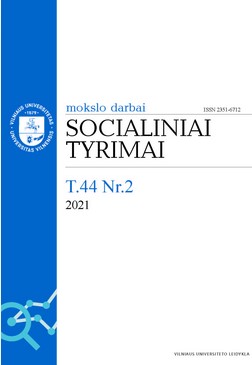Ar nuotolinis darbas COVID-19 pandemijos metu gali sustiprinti ryšį tarp darbo krūvio ir darboholizmo?
Can remote work during COVID-19 pandemic strengthen the link between workload and workaholism?
Author(s): Modesta Morkevičiūtė, Auksė EndriulaitienėSubject(s): Labor relations, Organizational Psychology, Health and medicine and law, Human Resources in Economy
Published by: Vilniaus Universiteto Leidykla
Keywords: workaholism; work addiction; workload; remote work; COVID-19;
Summary/Abstract: The aim of the present study was to investigate the role of the way of doing work for the relationship between workload and workaholism during COVID-19 pandemic. A total of 668 employees working in different Lithuanian organizations participated in a study. A sample included employees who worked in the workplace (n = 331), as well as those who worked completely from home (n = 337). The levels of workaholism were measured using DUWAS-10 (Schaufeli et al., 2009). Workload was assessed with the help of the Quantitative Workload Inventory (QWI; Spector & Jex, 1998). It was revealed in a study that the higher levels of workload experienced by employees were related to the increased workaholism. It was further found that the positive relationship between workload and workaholism was stronger in the group of complete remote workers. Overall, the findings support the idea that remote work is an important variable increasing a risk for workaholism especially for those employees who experience a heavy workload. Therefore, the ways of doing work must be considered when addressing well-being of employees.
Journal: Socialiniai tyrimai
- Issue Year: 44/2021
- Issue No: 2
- Page Range: 129-138
- Page Count: 10
- Language: Lithuanian

